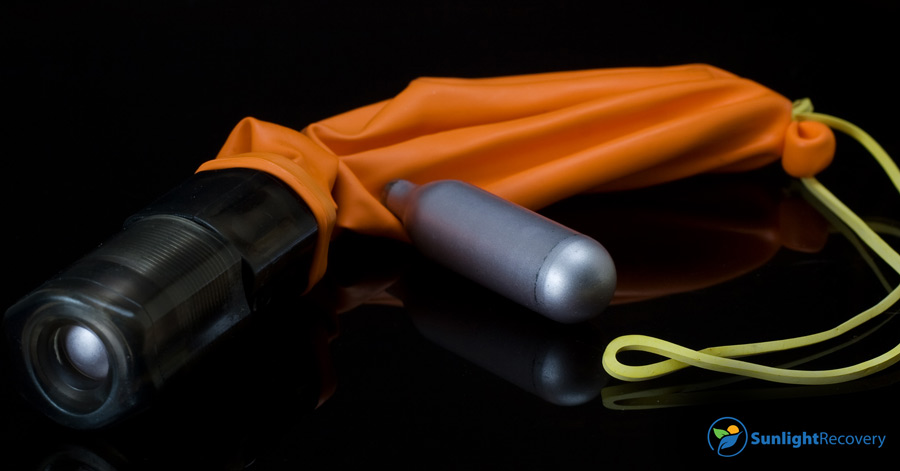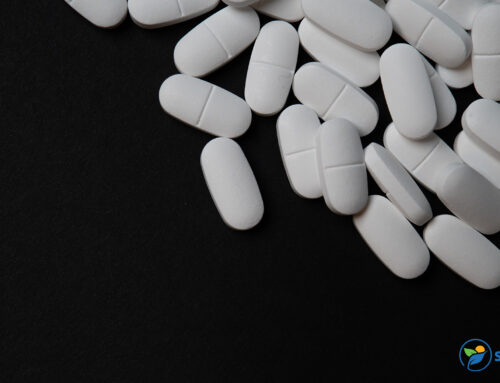Combining alcohol and inhalants can be extremely dangerous and can lead to serious health complications. While those who tend to mix poppers and alcohol are on the younger side, the risk factors are high, regardless of age. According to the CDC, 50% of all drug overdose cases involve mixing more than one substance, and alcohol is one of the most common.
One of the most serious dangers of mixing alcohol and inhalants is that it can lead to respiratory failure. Inhalants can cause the air passages in the lungs to constrict, making it difficult to breathe. When combined with alcohol, which also depresses the central nervous system, the risk of respiratory failure is greatly increased.
Mixing poppers and alcohol can be particularly dangerous, as both substances can have a significant impact on the body’s cardiovascular and nervous systems. Poppers, also known as alkyl nitrites, are inhaled substances that can cause blood vessels to dilate and blood pressure to drop. This can lead to lightheadedness, dizziness and fainting.
What are Inhalants and What Do They Do?
Inhalants are a diverse group of substances that are breathed in through the nose or mouth to produce a mind-altering effect. They include gases, aerosols and solvents commonly found in household and industrial products. Some examples of inhalants include:
- Volatile solvents: These are liquids that vaporize at room temperature and are found in products such as paint thinners, gasoline and glue.
- Aerosols: These are sprays that contain propellants and solvents and include products such as hair spray, spray paint and deodorant.
- Gases: These include nitrous oxide (commonly known as laughing gas) and chloroform, which are used as anesthetics.
- Poppers: Poppers are a type of inhalant also known as alkyl nitrites, commonly used as a recreational drug. They’re usually sold in small bottles and are inhaled to produce a rush or “high.”
The effects of inhalants can vary depending on the specific substance and the amount used, but they can include:
- A feeling of euphoria or a high
- Dizziness and lightheadedness
- Loss of inhibitions
- Slurred speech
- Drowsiness
- Nausea and vomiting
- Loss of consciousness
- Hallucinations
- Delirium
Long-term use of inhalants can damage the brain, liver and other organs and can also lead to addiction. Poppers specifically can cause short-term side effects like headaches, nausea and chest pain, and long-term use can lead to permanent damage to the eyes and brain, as well as anemia and other blood-related disorders.
It’s important to note that inhalants can be deadly, particularly when used in large amounts or in combination with other substances, such as alcohol.
What Is Alcohol and What Does It Do?
Alcohol is a central nervous system depressant that’s commonly consumed in the form of beverages such as beer, wine and spirits. It’s produced by the fermentation of sugars and starches and found in varying concentrations in different alcoholic beverages.
When consumed, alcohol is rapidly absorbed into the bloodstream and travels to the brain, where it affects the activity of neurotransmitters, the chemical messengers in the brain. This leads to the characteristic effects of alcohol, such as feeling relaxed, less inhibited and more sociable.
The effects of alcohol vary depending on the individual and the amount consumed. Some of the short-term effects of alcohol include:
- Increased feelings of euphoria and sociability
- Relaxation and reduction in anxiety
- Slurred speech
- Impaired coordination and balance
- Reduced reaction time
- Difficulty concentrating
- Poor judgment
- Increased risk of accidents and injuries
However, as the amount of alcohol consumed increases, the effects become more severe and may include:
- Drowsiness and fatigue
- Nausea and vomiting
- Loss of consciousness
- Blackouts
- Altered perception
- Difficulty breathing
- Coma
Long-term use of alcohol can cause serious health problems, including liver damage, cancer, heart disease and mental health disorders. It can also lead to addiction, which can have a detrimental effect on an individual’s personal, professional and social life.
What Are the Risks of Combining Inhalants and Alcohol?
Mixing inhalants and alcohol can be extremely dangerous and lead to serious health complications. It’s also possible to try huffing alcohol, which combines the fast-acting effects of inhalants with the long-term potential side effects of alcohol abuse. Inhalants and alcohol are central nervous system depressants, which means they slow down the activity of the brain and the body. When used together, their effects can be enhanced and amplified, leading to a greater risk of harm.
Some of the short-term side effects of mixing inhalants and alcohol include:
- Dizziness and lightheadedness
- Nausea and vomiting
- Slurred speech
- Impaired coordination and balance
- Reduced reaction time
- Difficulty concentrating
- Poor judgment
- Increased risk of accidents and injuries
- Loss of consciousness
- Coma
When combining inhalants and alcohol, it’s important to remember that users are at risk for all the side effects that can come from either substance.
When poppers are combined with alcohol, the effects can be extreme. Both can lower blood pressure and affect the cardiovascular system, which can increase the risk of heart attack or stroke. This combination can also lead to nausea and vomiting and may cause the individual to pass out, increasing the risk of injury. Moreover, poppers themselves can cause short-term side effects like headaches, nausea and chest pain and major health issues after long-term use.
The combination of inhalants and alcohol can lead to respiratory failure, coma, brain damage and death.
When to Seek Help
Addiction to alcohol, inhalants or both is a challenge, but with the right care and rehabilitation services, you can start recovery. If you’re regularly huffing alcohol at parties or using inhalants while drinking, don’t wait. Get help today.
At Sunlight Recovery, we offer rehabilitation programs that are designed and tailored specifically to you. From residential treatment to individual therapy, there’s a path toward getting better. If you’re ready to leave alcohol and inhalants in the past, we’re ready to help you plan your future.
Recovery isn’t instant, but it is possible. Contact us today.






